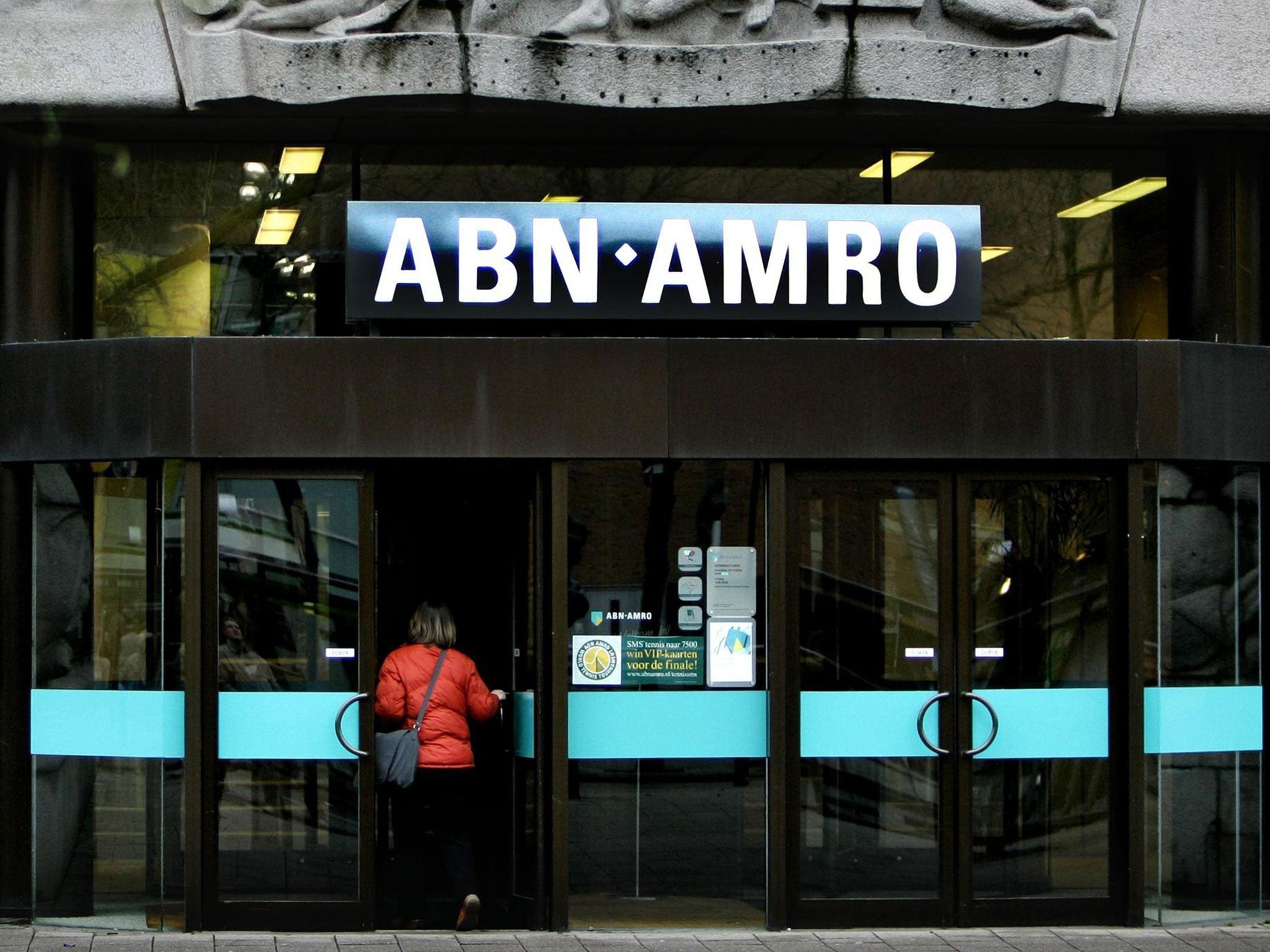ABN Amro: Bank that brought down RBS poised for return to the market
Dutch government fires starting gun on flotation to start recouping the €22bn it spent rescuing the bank

Your support helps us to tell the story
From reproductive rights to climate change to Big Tech, The Independent is on the ground when the story is developing. Whether it's investigating the financials of Elon Musk's pro-Trump PAC or producing our latest documentary, 'The A Word', which shines a light on the American women fighting for reproductive rights, we know how important it is to parse out the facts from the messaging.
At such a critical moment in US history, we need reporters on the ground. Your donation allows us to keep sending journalists to speak to both sides of the story.
The Independent is trusted by Americans across the entire political spectrum. And unlike many other quality news outlets, we choose not to lock Americans out of our reporting and analysis with paywalls. We believe quality journalism should be available to everyone, paid for by those who can afford it.
Your support makes all the difference.The Dutch lender that forced Royal Bank of Scotland into the arms of the UK taxpayer in 2008 is set for a return to the stock market.
Seven years after ABN Amro was nationalised at the height of the financial crisis, the Dutch government has fired the starting gun on a flotation to start recouping the €22bn (£116bn) it spent rescuing the bank.
RBS, then led by Fred Goodwin, fought off Barclays to win control of ABN with a £49bn bid in 2007, in combination with the Belgian-Dutch bank Fortis and Spain’s Santander. The takeover had a disastrous impact on the balance sheet of RBS just as the financial crisis entered its most serious phase, resulting in a huge bailout for the lender. Meanwhile the Dutch government was forced to nationalise Fortis and its ABN assets.
RBS posted a £24bn loss, the biggest in UK corporate history, of which £16bn was a goodwill loss on the ABN deal.
The Dutch government has said it aims to sell as much as 30 per cent of ABN, potentially by the end of the year, and has signalled that it is worth around €15bn. The company is now a fraction of its former size after a reorganisation in 2010 that focused the business on its home market. Chief executive Gerrit Zalm, a former Dutch finance minister, said the move “marks an important step towards our new future”.
The shares will be listed on Amsterdam’s Euronext exchange. A host of banks including Morgan Stanley, Deutsche Bank and ABN itself are managing the float.
A recovering Dutch economy has lifted results at the bank, which posted underlying profits of €600m between April and June — nearly double the same time last year and its strongest performance since the 2010 overhaul. The agency that manages the Netherlands’ bank holdings said Dutch and European regulators had approved a listing.
The bank goes back nearly 200 years; its current identity is the result of a merger between ABN and Amro in 1991.
Join our commenting forum
Join thought-provoking conversations, follow other Independent readers and see their replies
Comments